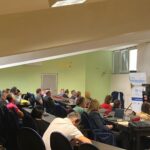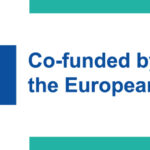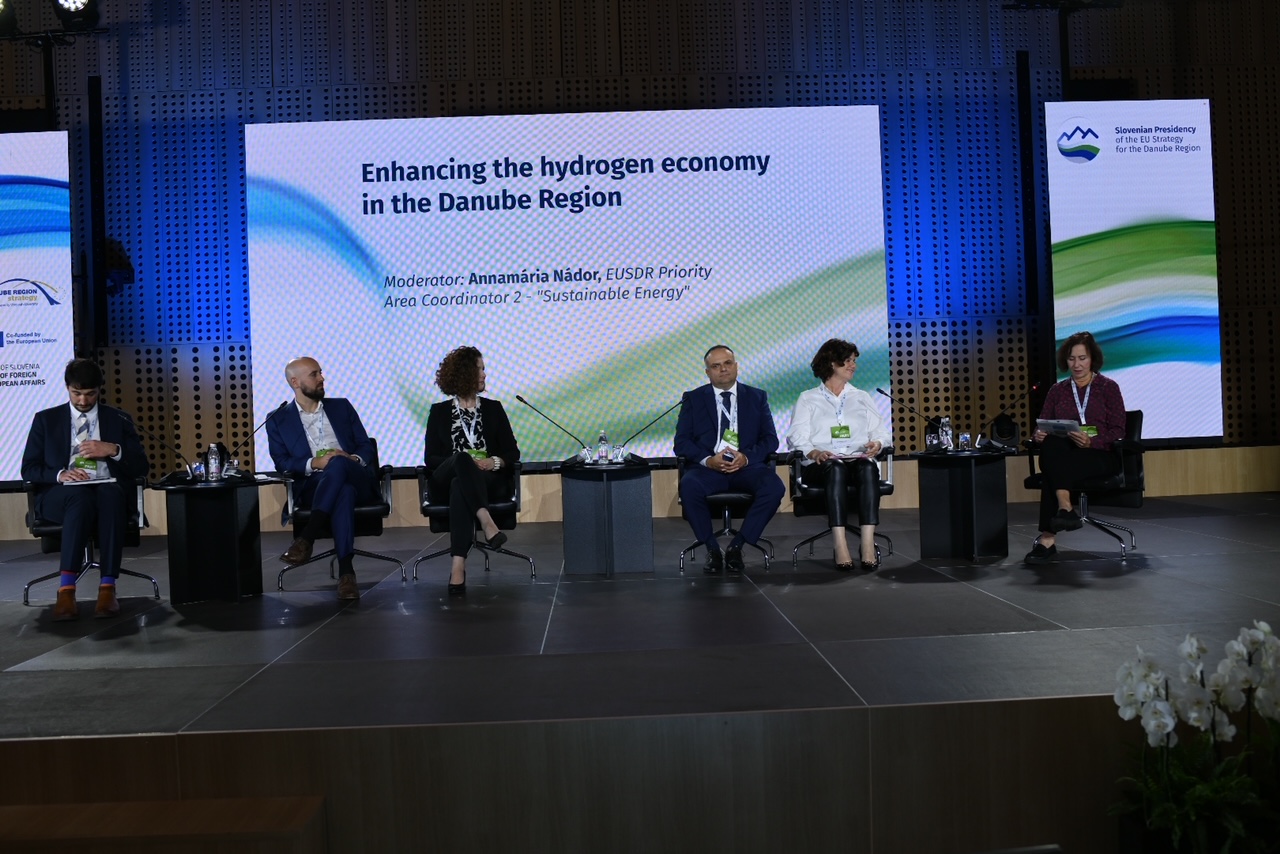The 12th Annual Forum of the EUSDR was organized by the Slovenian Presidency on 24-25 October in Brdo pri Kranju, Slovenia. The Hungarian coordination of PA2 was co-organizer of the panel titled “Enhancing the hydrogen economy in the Danube region” held on 25 October. Hydrogen was chosen as the topic of the workshop as it provides an excellent opportunity for the region to move towards the decarbonization of the energy systems. The aim of the workshop was to identify the main challenges for the development of the hydrogen economy in the region and to provide some examples of good practices.
The keynote presentation was held by Mr Ádám Balogh, Senior Energy Infrastructure Expert of the Energy Community. He set the scene for the discussion by providing an outlook about the production and utilisation of the hydrogen and by presenting its advantages and its costs compared to other sustainable energy sources. He also summarized the EU context including the presentation of the most important international organizations in the hydrogen field and the EU legislative background.
The panel discussion, that followed the presentation, was moderated by Ms Annamária Nádor, Hungarian Coordinator of the PA2. The panelists represented a wide range of stakeholders in the field of hydrogen. Mr Julian Dörr is a researcher at the University of Stuttgart, and he presented their unique pilot project where they produce green hydrogen locally for local consumption. Ms Teodóra Diána Bakk, Chief Operating Officer of the National Laboratory for Renewable Energy in Hungary, presented their hydrogen engineer education program at the University of Pécs and talked about their hydrogen infrastructure development projects which are currently under development. Mr Marko Bahor, the Executive Director for Development and Investments of the Slovenian Power Plants Holding, presented their experiences in the utilisation of hydrogen in the power plants and introduced the North-Atlantic Hydrogen Valley project. Ms Vlasta Krmelj, Director at the Climate and Energy Agency of Podravje, talked about the importance of the awareness raising and education of the public. She presented the AMETHyST project where various stakeholders from different countries share their experiences, build data base and prepare bigger projects. Mr Ádám Balogh stressed that the price, utilisation method and security of supply will be the key issues for the hydrogen. He also highlighted that we need to stay technology neutral, and we always have to choose the most convenient technology to reach the utmost goal, the decarbonization of the economy.
All the participants agreed that the most important factors for the enhancement of the hydrogen economy in the region are the predictable and regionally harmonized legislative environment, available financial sources both EU and local level, cooperation and knowledge sharing vertically and horizontally and the appropriate information and education of the public.




